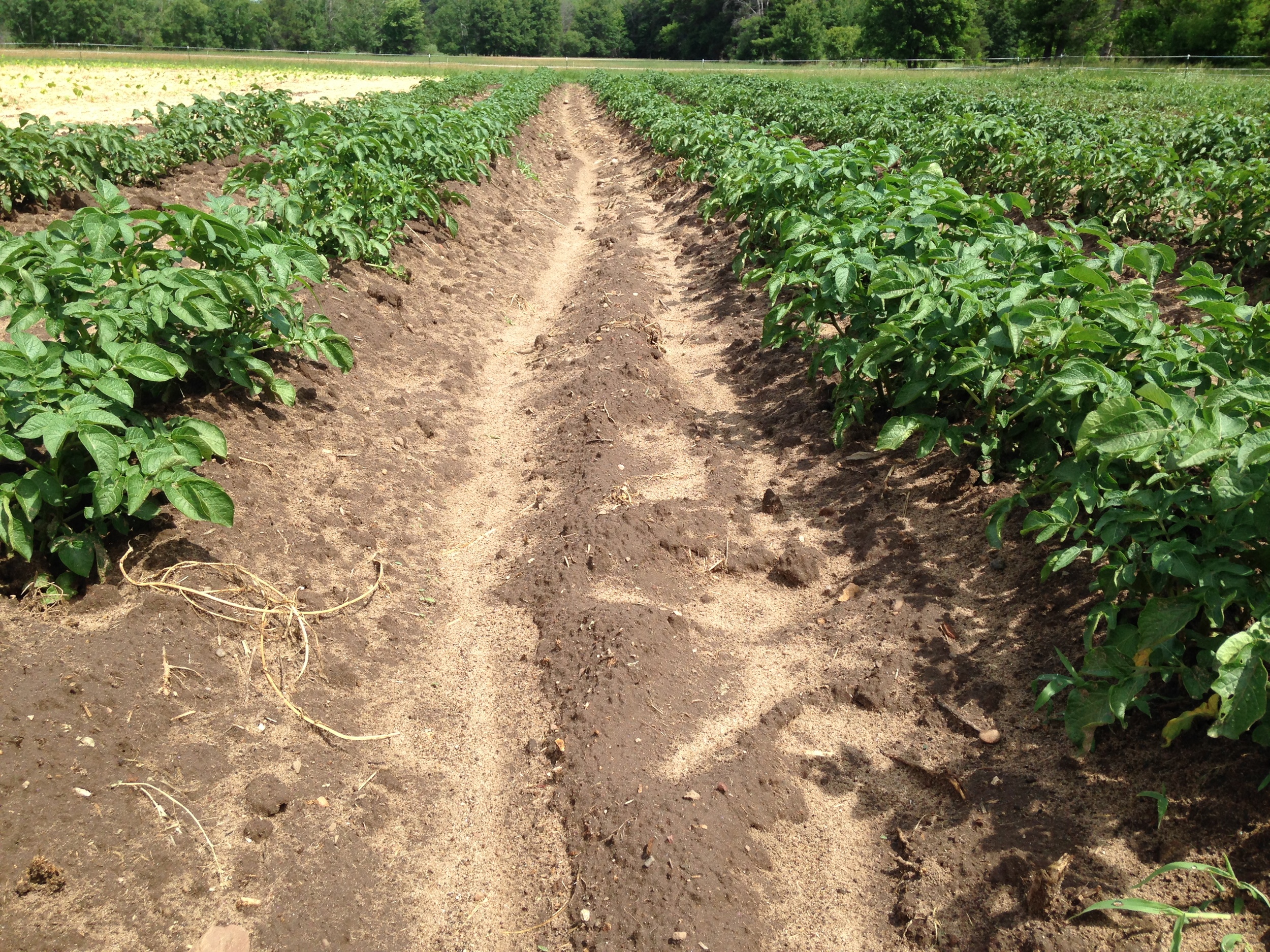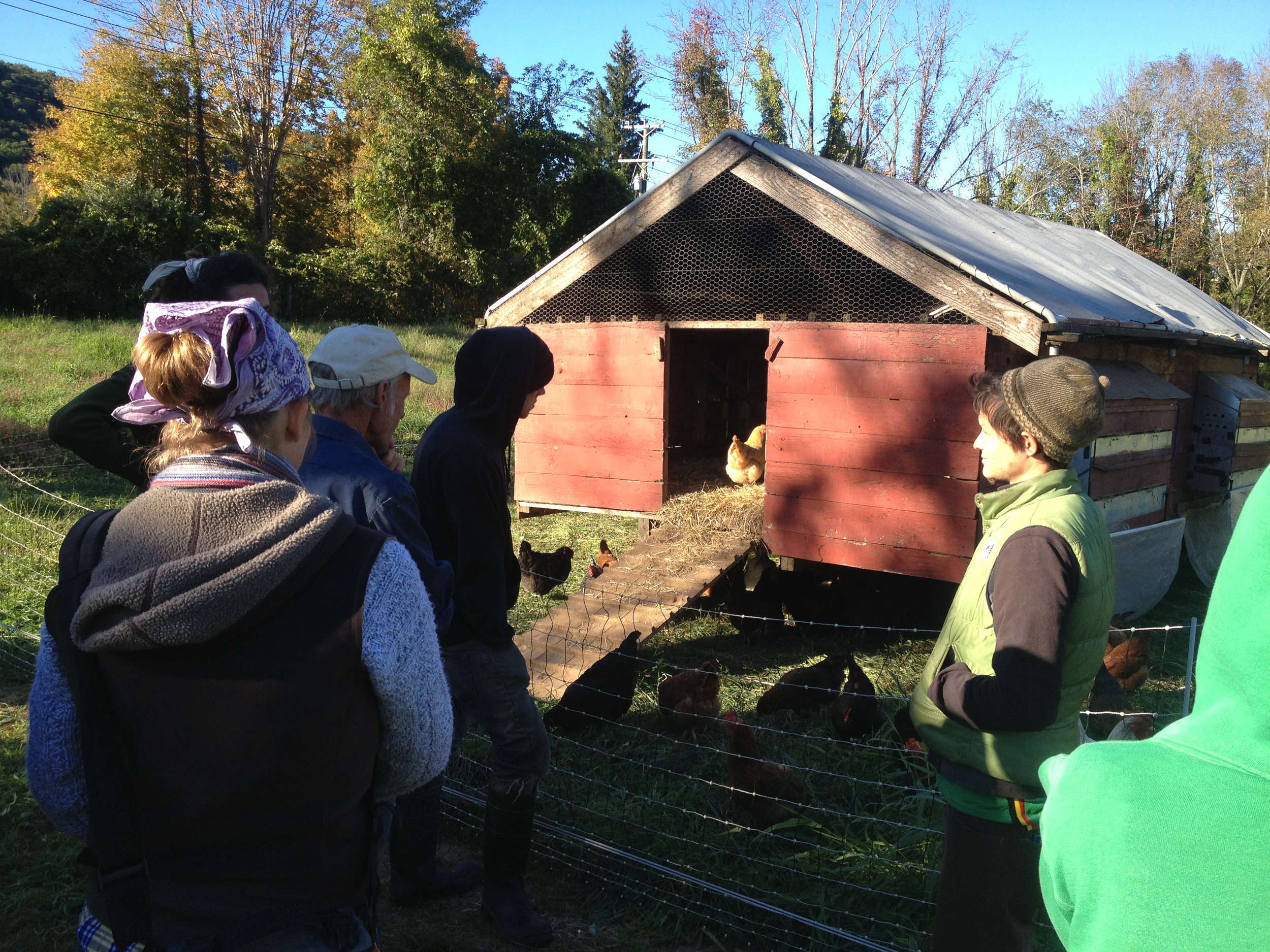Well, I survived my five days in charge of the farm. The animals were fed, watered, moved, and milked as necessary, the veg was weeded, watered, harvested, delivered, and sold, and I came out the other end relatively unscathed, if with a bit of a summer cold. I can’t blame the farm for that, but I have two small suspects in the hunt for patient zero. It was actually quite nice to be on the farm all day - I’m up early no matter how hard I try to sleep past 6, and I’m usually asleep by 10, but that leaves a quite a bit of time outside my usual “business hours.” I went out early to start the morning chores, attempting to finish them by the time the vegetable helpers arrived at 8:30 or 9. Most days, I was mostly successful. It was also nice to be able to work in the evenings, when the sun wasn’t so strong. I picked tomatoes in the greenhouse, weeded the celeriac and the carrots, added another super to the beehives, all under a much gentler sun. As much as I enjoyed the experience, I kept remembering that while I could keep the farm running, it was on a very basic level, pared down, well-prepared, and well-assisted. I didn’t have to keep track of two young boys or do any caretaking work for the landlord. As smoothly as it went, it actually deepened my respect for how hard and how long Mat and Danielle work on a daily basis. I certainly hope they actually relaxed on their trip, though I doubt they are capable of complete relaxation.
In other news, August continues racing by at a record-breaking clip. I can’t really tell whether we’re still in the throes of summer or whether fall has come early. Our field tomatoes are stalwartly green, and we’re hoping that the weather cooperates enough to give us a pretty good yield. After last year’s near crop failure, I’m looking forward to stocking up on tomato sauces for the winter. We have a few varieties of paste tomato out in the field, and I’m looking forward to canning as much as possible when they finally start ripening (knock on wood). Though I have no basis for this hunch, I have a feeling we’re in for a bit of an Indian Summer. It’s been a bit of an odd year, weather-wise, and I’m just hoping it cooperates long enough for at least a good portion of the ton of green fruit to turn red (and yellow and orange and stripedy). I’m trying not to think about how busy the next two weeks are going to be, and spent a good portion of the morning (dis)engaged in some classic nothing-doing while I have the chance. The next two weeks bring a big event on the farm, a parental visit, a going away party, helping friends move, moving myself, starting a second job, and a trip to the twin cities for a wedding. Oh yeah, and I’m really hoping for some ripening tomatoes, as if I needed something else to fill my time!
Thinking about: coordination, cooperation, condensation
Eating: broccoli-based stir-fries, tomatoes and basil, garlicky eggs, locally (in)famous spaghetti and meatball pizza
Reading: Michael Perry's Truck: A Love Story, Best Management Practices for Log-Based Shiitake Cultivation in the Northeastern United States









































